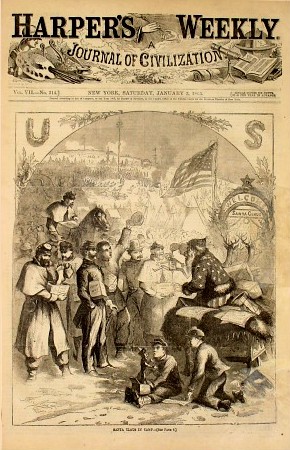The Warble
The Official Blog of Karen Ullo
Cinder Allia Named to Catholic Reads “Best of 2017”

Catholic Reads released their favorite books of 2017, and my newest novel, Cinder Allia, finished in a tie with Jane Lebak’s An Arrow in Flight for the top fantasy novel of the year! Congratulations to Jane and all the other winners. And if you haven’t read Cinder Allia yet, what are you waiting for?
In honor of this award, the Kindle Edition of Cinder Allia is now available for $0.99, but only until the end of 2017!
Here’s what Catholic Reads has to say:
Cinder Allia by Karen Ullo serves readers a fun, creative Cinderella story. Ullo’s plot, full of character twists, competent crafty villains, and cowardly heroes kept me thumbing my Kindle page after page. Her plot of political intrigue, quests for love, and restoration of a kingdom progresses through a cast of diverse characters who all struggle with their loyalty to their true selves. Ullo has captured my imagination and has written many excellent unforgettable scenes with vivid imagery and dialogue, humor, and an exciting plot worth reading again and again. The literary treasure and the incredible intrigue it contains are well worth the read.
Karen Ullo is the author of two novels, Jennifer the Damned and Cinder Allia. She is also the managing editor of Dappled Things literary journal and a regular Meatless Friday chef for CatholicMom.com. She lives in Baton Rouge, LA with her husband and two young sons. Find out more at www.karenullo.com.
Longfellow’s Christmas Peace

“A Christmas Furlough” by Thomas Nast, from the January 3, 1863 edition of Harper’s
‘Tis the season of “Peace on earth, good will to men.” And yet, the guns still blast through war-torn lands engulfed in genocide; they blast through concert halls, schoolyards, and churchyards, dousing sanctuaries with blood, while the newest “Cold War” percolates threats of mass destruction. “Peace on earth, good will to men,” is the song that heralds the birth of the Christ, but it also ushers in the flight to Egypt, the slaughter of the Holy Innocents, and ultimately, the crucifixion. Whatever the peace of Christmas is, it is not an end to earthly violence.
Like you, I wish it were.
Christmas peace is deeper than a lack of violence—though I have not yet learned to call what is deeper, “better.” This is the challenge Christmas presents to me—to all of us—because the peace of Christmas “surpasses all understanding” (Philippians 4:7). The peace of Christmas is simply the presence of faith.
“Christmas Bells”
Henry Wadsworth Longfellow
(1807-1882)
Written on Christmas Day, 1863,
after his son had been severely wounded in the Civil War
I HEARD the bells on Christmas Day
Their old, familiar carols play,
And wild and sweet
The words repeat
Of peace on earth, good-will to men!
And thought how, as the day had come,
The belfries of all Christendom
Had rolled along
The unbroken song
Of peace on earth, good-will to men!
Till ringing, singing on its way,
The world revolved from night to day,
A voice, a chime,
A chant sublime
Of peace on earth, good-will to men!
Then from each black, accursed mouth
The cannon thundered in the South,
And with the sound
The carols drowned
Of peace on earth, good-will to men!
It was as if an earthquake rent
The hearth-stones of a continent,
And made forlorn
The households born
Of peace on earth, good-will to men!
And in despair I bowed my head;
“There is no peace on earth,” I said;
“For hate is strong,
And mocks the song
Of peace on earth, good-will to men!”
Then pealed the bells more loud and deep:
“God is not dead, nor doth He sleep;
The Wrong shall fail,
The Right prevail,
With peace on earth, good-will to men.”
You can read the full story behind the poem here.
Karen Ullo is the author of two novels, Jennifer the Damned and Cinder Allia. She is also the managing editor of Dappled Things literary journal and a regular Meatless Friday chef for CatholicMom.com. She lives in Baton Rouge, LA with her husband and two young sons. Find out more at www.karenullo.com.
The Totally Feminine Genius Generations Book Club

Virtue Works Media founder Cathy Gilmore has created a fantastic book club designed to bring generations of women and girls together over warm drinks and great stories. The Totally Feminine Genius Generations Books Club is completely free: no sign up, no credit cards, and you can do it on your own schedule. What Cathy provides is a list of fantastic books for different age groups and a working list of questions centered around virtue to aid in the discussion. And of course, my latest novel, Cinder Allia is at the top of the list! Check it out!
Karen Ullo is the author of two novels, Jennifer the Damned and Cinder Allia. She is also the managing editor of Dappled Things literary journal and a regular Meatless Friday chef for CatholicMom.com. She lives in Baton Rouge, LA with her husband and two young sons. Find out more at www.karenullo.com.
Black Friday Sale on Cinder Allia!
For the first time ever, my fairy tale novel, Cinder Allia, is going on sale! Now through November 27 only, you can purchase the eBook for just 99 cents on all major eBook outlets (regular $3.99), and the paperback on Amazon for only $11.65 (regular $13.99).
Hurry, because after Nov. 27, the eBook will be temporarily removed from the market to migrate to a new distributor!

Cinder Allia has spent eight years living under her stepmother’s brutal thumb, wrongly punished for having caused her mother’s death. She lives for the day when the prince will grant her justice; but her fairy godmother shatters her hope with the news that the prince has died in battle. Allia escapes in search of her own happy ending, but her journey draws her into the turbulent waters of war and politics in a kingdom where the prince’s death has left chaos and division.
Cinder Allia turns a traditional fairy tale upside down and weaves it into an epic filled with espionage, treason, magic, and romance. What happens when the damsel in distress must save not only herself, but her kingdom? What price is she willing to pay for justice? And can a woman who has lost her prince ever find true love?
Surrounded by a cast that includes gallant knights, turncoat revolutionaries, a crippled prince who lives in hiding, a priest who is also a spy, and the man whose love Allia longs for most—her father—Cinder Allia is an unforgettable story about hope, courage, and the healing power of pain.
“Karen Ullo’s literary talent is captivating and thought-provoking, using symbolism and mystery to explore what keeps human beings in touch with the divine.” – Kaye Park Hinckley, author of A Hunger in the Heart and Birds of a Feather
“Ullo manages to take the mold and brick of legend and build a more than substantial work of art…. The story is completely familiar, yet completely new.” – Jonas Perez, author of Finibus
Karen Ullo is the author of two novels, Jennifer the Damned and Cinder Allia. She is also the managing editor of Dappled Things literary journal and a regular Meatless Friday chef for CatholicMom.com. She lives in Baton Rouge, LA with her husband and two young sons. Find out more at www.karenullo.com.

Recent Comments